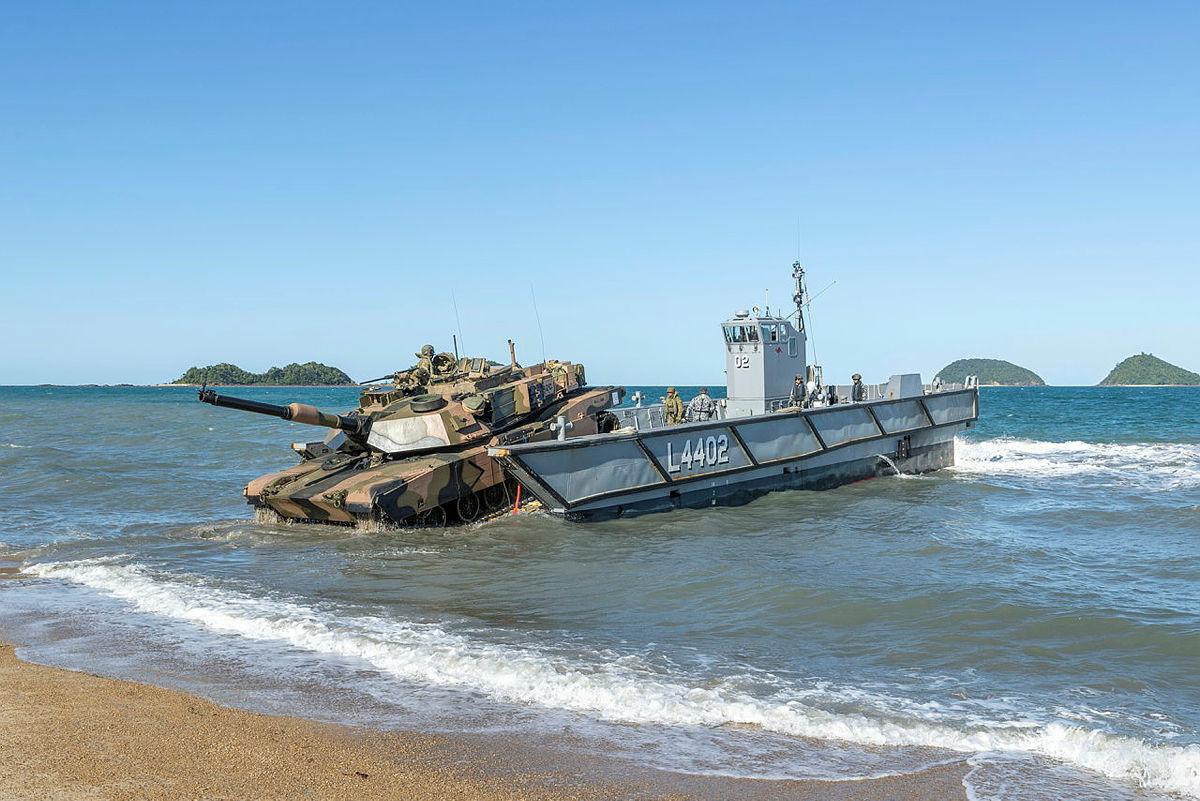The certainty of uncertainty: why Australia needs a flexible defence force
Posted By Shane Caughey on September 13, 2022 @ 06:00

A key task for those carrying out the government’s defence strategic review [1] is to consider the ability of the Australian Defence Force to engage in a high-intensity, state-on-state conflict in our region. Such a conflict would leave Australia no choice but to fight. It could reset the balance of power and potentially change the strategic alliance framework that has guaranteed Australia’s security for 70 years.
The review is intended to inform the Defence planners who must ensure that the ADF’s posture and force structure is relevant, capable and optimised to meet the range of security challenges facing the nation.
It might be enticing to attempt to predict the precise nature of future conflict but history shows that this is seldom achieved. The only certainty about such a war is that it will be characterised by uncertainty, and that nations are poor at predicting what is required. In February 2011, US Defense Secretary Robert Gates famously told West Point cadets: ‘When it comes to predicting the nature and location of our next military engagements, since Vietnam, our record has been perfect. We have never once gotten it right’. Determining the military capabilities required to succeed in future conflict means understanding what will be needed to resolve a conflict regardless of its character—what will bring victory, and what will lead to defeat.
Much of the recent analysis of the ADF’s force structure requirements focuses on high-end air, maritime and long-range strike capabilities to maximise the advantage afforded by Australia’s geography. These capabilities are essential to deter a potential adversary. Integrated with effects from space and cyber, they will help the ADF hold an enemy at risk from afar and, if necessary, degrade that adversary’s anti-access/area denial (A2/AD) envelope. While essential, these capabilities are incomplete and lack the capacity to compel an adversary to submit. Relying on high-end technologies where adversaries exchange destructive weapons from afar would be no more than attrition warfare by more modern means.
The trap for force structure planners is to be enticed by the concept that future conflict can be won by focusing on technologies that provide the opportunity to empty the battlespace, negating the requirement for forces to manoeuvre so that they can close with and destroy an enemy. History reminds us that to succeed in conflict it’s essential to apply land power to be able to threaten or, if required, destroy an adversary. During the first Gulf War, the overwhelming superiority in stand-off weapons was insufficient to force Iraqi forces to withdraw from Kuwait. It was only when the US-led coalition was able to manoeuvre a ground force to close with and engage in joint land combat that Iraqi forces were evicted from Kuwait. Conversely, the conflicts in Vietnam and Afghanistan demonstrated that superiority in technology and firepower cannot guarantee victory against an enemy that is afforded a haven away from ground combat, where it can regenerate despite aerial bombardment and attacks with stand-off weapons.
Some commentators argue that the lethality of A2/AD capabilities makes the manoeuvre of land forces, especially heavy armoured vehicles, through our region impossible. Critics of armoured land forces also argue these capabilities are no longer relevant due to their vulnerability to advanced anti-armour capabilities and unmanned aerial platforms, as evidenced during the Azerbaijan–Armenia conflict of 2020 and the Russian experience in Ukraine. A detailed analysis of these conflicts reveals that these vulnerabilities result from poor tactical employment and training, and not inherent capability deficiencies.
Conflicts must be seen as evolving campaigns with different mixes of capabilities required at different times. As in the past, future conflict will evolve based on the changing fortunes of the belligerents. Force structure planners must consider the requirements of the ADF through a broad campaigning construct that will evolve over time. The ADF must be able to operate effectively in all domains, adjusting its mix of force as the nature of the campaign evolves. It must maintain and enhance its ability to manoeuvre through the sea, air and land gap to Australia’s north. While this will require continued investment in capabilities to engage adversaries at extended range, conflict has always been, and will always remain, a contest of human will inevitably requiring forces to close and engage in violent and brutal land combat. Accordingly, the ADF will require the capacity to tactically manoeuvre land combat power to close with and destroy the adversary or defend against an adversary’s manoeuvre.
With this understanding, the ADF must continue to invest in land forces. An ADF with ready land combat forces ensures it can meet a key principle of war, flexibility. This will enable it to respond with credible military force to a range of challenges as a military campaign evolves. Given the emerging security environment, now is not the time to limit Australia’s force structure options. Whatever the character of future conflict and however it may unfold, it will only be resolved by people. To compel an adversary into submission, the ADF must develop the capacity to manoeuvre a truly integrated joint force, including lethal, protected, mobile and connected land forces, capable of fighting aggressively and winning conclusively in joint land combat.
Article printed from The Strategist: https://aspistrategist.ru
URL to article: /the-certainty-of-uncertainty-why-australia-needs-a-flexible-defence-force/
URLs in this post:
[1] defence strategic review: https://www.defence.gov.au/about/reviews-inquiries/defence-strategic-review
Click here to print.